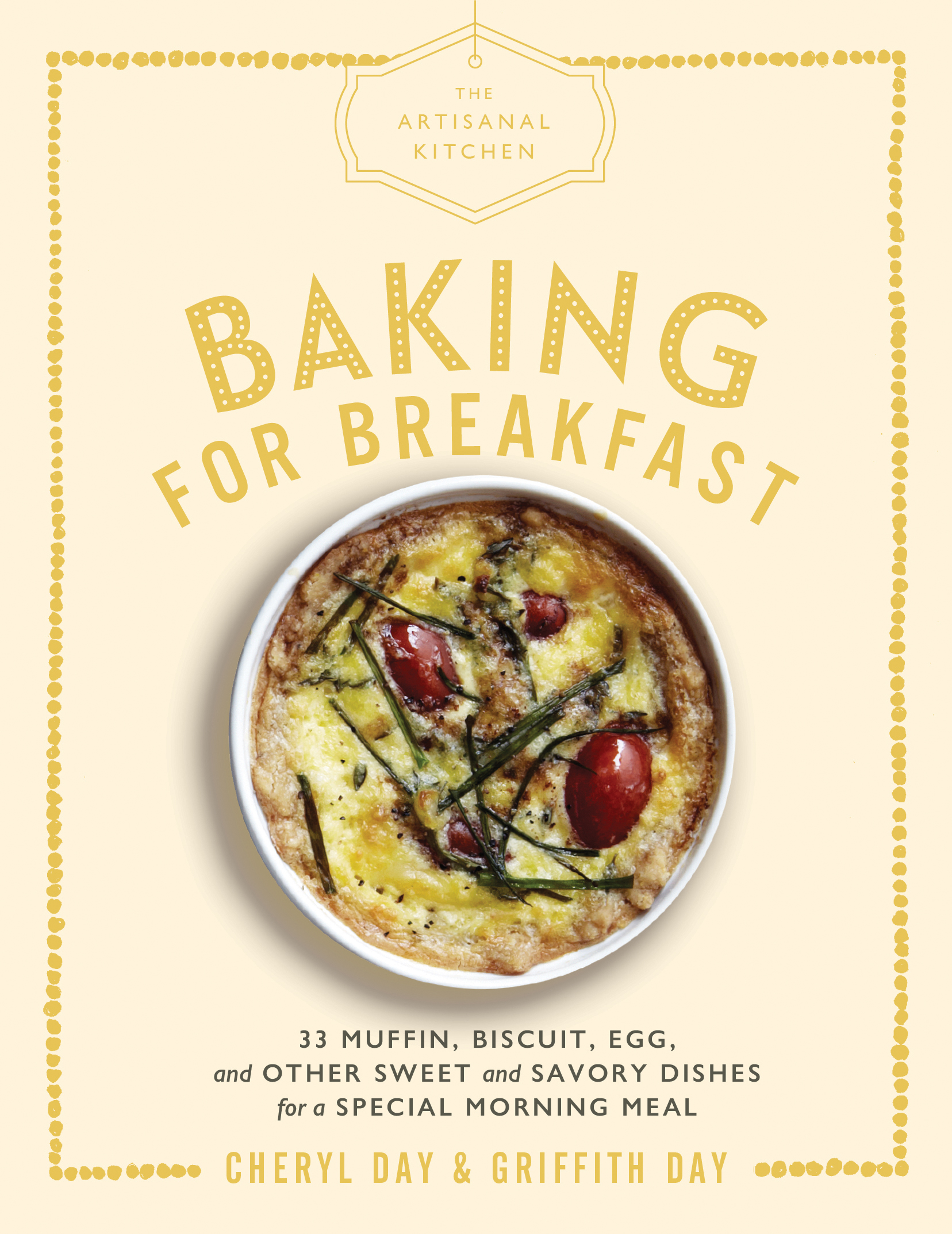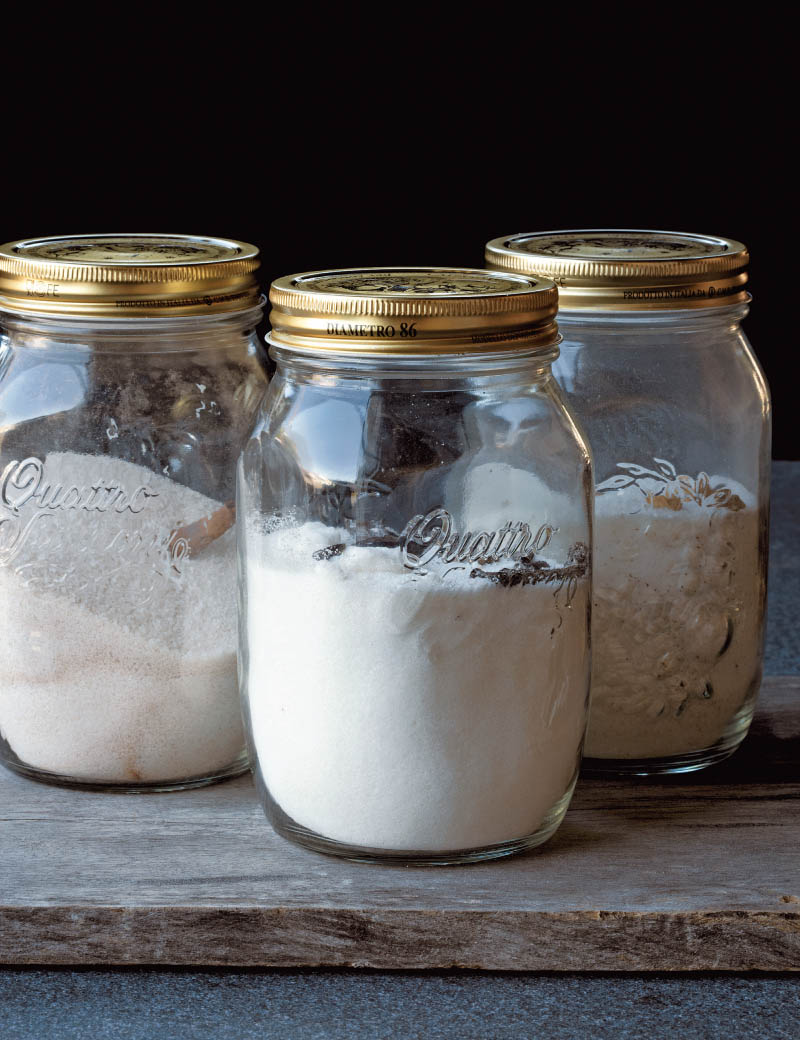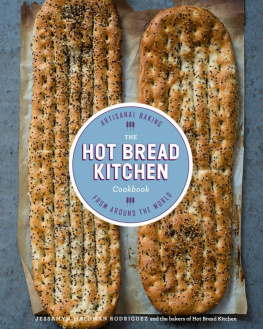Cheryl Day - The artisanal kitchen : baking for breakfast
Here you can read online Cheryl Day - The artisanal kitchen : baking for breakfast full text of the book (entire story) in english for free. Download pdf and epub, get meaning, cover and reviews about this ebook. year: 2018, publisher: Artisan, genre: Home and family. Description of the work, (preface) as well as reviews are available. Best literature library LitArk.com created for fans of good reading and offers a wide selection of genres:
Romance novel
Science fiction
Adventure
Detective
Science
History
Home and family
Prose
Art
Politics
Computer
Non-fiction
Religion
Business
Children
Humor
Choose a favorite category and find really read worthwhile books. Enjoy immersion in the world of imagination, feel the emotions of the characters or learn something new for yourself, make an fascinating discovery.

- Book:The artisanal kitchen : baking for breakfast
- Author:
- Publisher:Artisan
- Genre:
- Year:2018
- Rating:3 / 5
- Favourites:Add to favourites
- Your mark:
- 60
- 1
- 2
- 3
- 4
- 5
The artisanal kitchen : baking for breakfast: summary, description and annotation
We offer to read an annotation, description, summary or preface (depends on what the author of the book "The artisanal kitchen : baking for breakfast" wrote himself). If you haven't found the necessary information about the book — write in the comments, we will try to find it.
Cheryl Day: author's other books
Who wrote The artisanal kitchen : baking for breakfast? Find out the surname, the name of the author of the book and a list of all author's works by series.
The artisanal kitchen : baking for breakfast — read online for free the complete book (whole text) full work
Below is the text of the book, divided by pages. System saving the place of the last page read, allows you to conveniently read the book "The artisanal kitchen : baking for breakfast" online for free, without having to search again every time where you left off. Put a bookmark, and you can go to the page where you finished reading at any time.
Font size:
Interval:
Bookmark:


 33 Muffin, Biscuit, Egg, and other Sweet and savory dishes for a Special Morning Meal Cheryl Day and Griffith Day
33 Muffin, Biscuit, Egg, and other Sweet and savory dishes for a Special Morning Meal Cheryl Day and Griffith Day  Artisan | New York Contents
Artisan | New York Contents  Introduction W ho doesnt love waking up to the smell of something baking in the oven? The morning can be a magical time of day if you start it with fresh-baked muffins, warm biscuits slathered with butter and jam, or a hearty bread pudding. Whether youre baking for two or feeding a crowd, these recipes will give you a range of things to bake for breakfastboth sweet and savory, whatever youre craving. Some of the recipes can be prepared the night before and baked in the morning; others will come together in just minutes with ingredients you have on hand. Holidays are even more special when you bake for breakfast, but any day can be sweeter when you start it with something fresh from the oven. The Method to the Magic Theres a mystique that surrounds baking. Even after all these years, Griff and I remain fascinated by the process of mixing just a few simple ingredients together and creating something wonderful.
Introduction W ho doesnt love waking up to the smell of something baking in the oven? The morning can be a magical time of day if you start it with fresh-baked muffins, warm biscuits slathered with butter and jam, or a hearty bread pudding. Whether youre baking for two or feeding a crowd, these recipes will give you a range of things to bake for breakfastboth sweet and savory, whatever youre craving. Some of the recipes can be prepared the night before and baked in the morning; others will come together in just minutes with ingredients you have on hand. Holidays are even more special when you bake for breakfast, but any day can be sweeter when you start it with something fresh from the oven. The Method to the Magic Theres a mystique that surrounds baking. Even after all these years, Griff and I remain fascinated by the process of mixing just a few simple ingredients together and creating something wonderful. The fact of the matter is, though, there is a method to the magic, and it is accessible to everyone. Baking requires practice and patience. It is a science, and learning how to measure your ingredients properly and understanding the details of a recipe will make you a better baker. We have all had the experience of creating a tough muffin or a piecrust that could be mistaken for a floor tile. You feel inadequate when a recipe doesnt work out. While baking can be simple and fun, it does require mastering techniques that will give you those delicious results we all want to achieve.
However, once you learn the fundamentals and how to use all of your senses, you can bake for your family and friends and earn bragging rights for your delicious victories. Here are some of the fundamentals I adhere to. Get It Together The French term mise en place means, literally, to put in place. It makes a big difference to have all of your ingredients measured and ready to go before you start to mix. So do like the TV chefs do and assemble your ingredients before youre ready to bake. Always begin by reading your recipe through to make sure you have a clear understanding of the process involved, as well as of all the ingredients and tools needed.
For instance, cake recipes usually call for room-temperature ingredients, and pies and pastries require some cold ingredients. And in baking, as in many other things, timing is of the essence. The last thing you want to do is have to run around the kitchen preparing your muffin pans or getting your eggs up to room temperature after youve started mixing. Start with a clean kitchen and have everything prepped to go. Once you are organized and have your tools ready, you will have the confidence to mix and bake like a pro. Temperature Matters Always bring your ingredients to the temperature called for in the recipe before you begin baking.
This is what my grandmother taught me so many years ago, and I assure you, if you follow this rule, youll get the best results. When a recipe calls for eggs at room temperature, it is critical that you bring them to room temperature. Here is why: if the eggs are too cold when added to your perfectly creamed butter, the butter will seize up, deflating the air bubbles that you have created, and the batter will resist mixing completely. If that happens, the air bubbles will not expand during baking and the result will be a flat, dense cake, not one with the fluffy and tender crumb that you want. I know this from experience. I understand being in a hurry, believe me! When Ive got five or six things to get out for the bakerys opening and special orders to get done by midday, I look for good shortcuts.
Heres a quick and easy way to bring eggs up to room temperature: put the whole eggs in a small bowl of hot water and swish them around for about 1 minute, being careful not to bang their delicate shells against one another. Bringing butter to room temperature is important too. If you have an instant-read thermometer, the proper temperature is between 65 and 67F, still cool but not cold. You can either pull the butter out of the refrigerator 30 minutes or so before you are ready to bake or cut it into small cubes to speed the process of bringing it to room temperature. A few visual and tactile clues can also help you determine the proper temperature. You should be able to make an indentation with your finger on the surface of the butter, but the butter should be slightly firm, not hardand definitely not squishy.
If the butter gets too warm, label it with the date, then return it to the refrigerator for future use in something that does not require creaming. Start again with fresh butter. Another point about temperature: an oven thermometer is one of the most important tools in a bakers kit (see ). If the oven is not hot enough, rising will be inhibited, and that means flat cakes. Use an oven thermometer to make sure your oven has reached the desired temperature and is calibrated correctly. And always preheat your oven for at least 20 minutes (30 is preferable) so it reaches the proper temperature.
The Ingredients Are Key It is important to have a clear understanding of the role each ingredient plays in the baking process. In baking, its never okay to substitute ingredients or to skip over steps and think it will all work out in the end. Take the unassuming egg. Eggs perform so many important functions in baked goods and other desserts, such as custards and souffls. They leaven, thicken, moisturize, and enhance flavor. Whole eggs, as well as just yolks, act as great emulsifiers.
The lecithin in egg yolks binds fats and water, which normally resist each other. Eggs also provide structure. When egg whites are whipped to stiff peaks and folded into a batter, the air trapped in the whites will expand in the heat of the oven during baking, acting as the leavening agent for light and airy baked goods. Baking soda and baking powder are both leaveners as well. They create chemical reactions in a batter to force air bubbles to expand during the baking process. Baking soda requires the presence of an acid, such as sour cream, buttermilk, molasses, non-alkalized cocoa powder, or brown sugar (which contains molasses), to name a few.
Baking powder reacts without the presence of acid. Once it is combined with a liquid, such as milk, it releases carbon dioxide, creating air bubbles that cause a cake layer or a biscuit to rise. Baking powder made with aluminum compounds has a chemical aftertaste. We use aluminum-free baking powder in all of our recipes that call for this ingredient. It may cost a bit more, but you will notice the difference in the way your baked goods taste. Aluminum-free baking powder is available in the natural foods section in supermarkets or online from King Arthur Flour (see ).
Font size:
Interval:
Bookmark:
Similar books «The artisanal kitchen : baking for breakfast»
Look at similar books to The artisanal kitchen : baking for breakfast. We have selected literature similar in name and meaning in the hope of providing readers with more options to find new, interesting, not yet read works.
Discussion, reviews of the book The artisanal kitchen : baking for breakfast and just readers' own opinions. Leave your comments, write what you think about the work, its meaning or the main characters. Specify what exactly you liked and what you didn't like, and why you think so.


